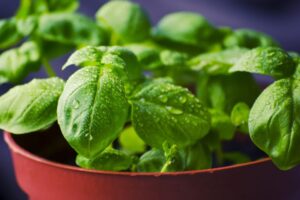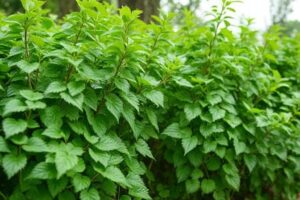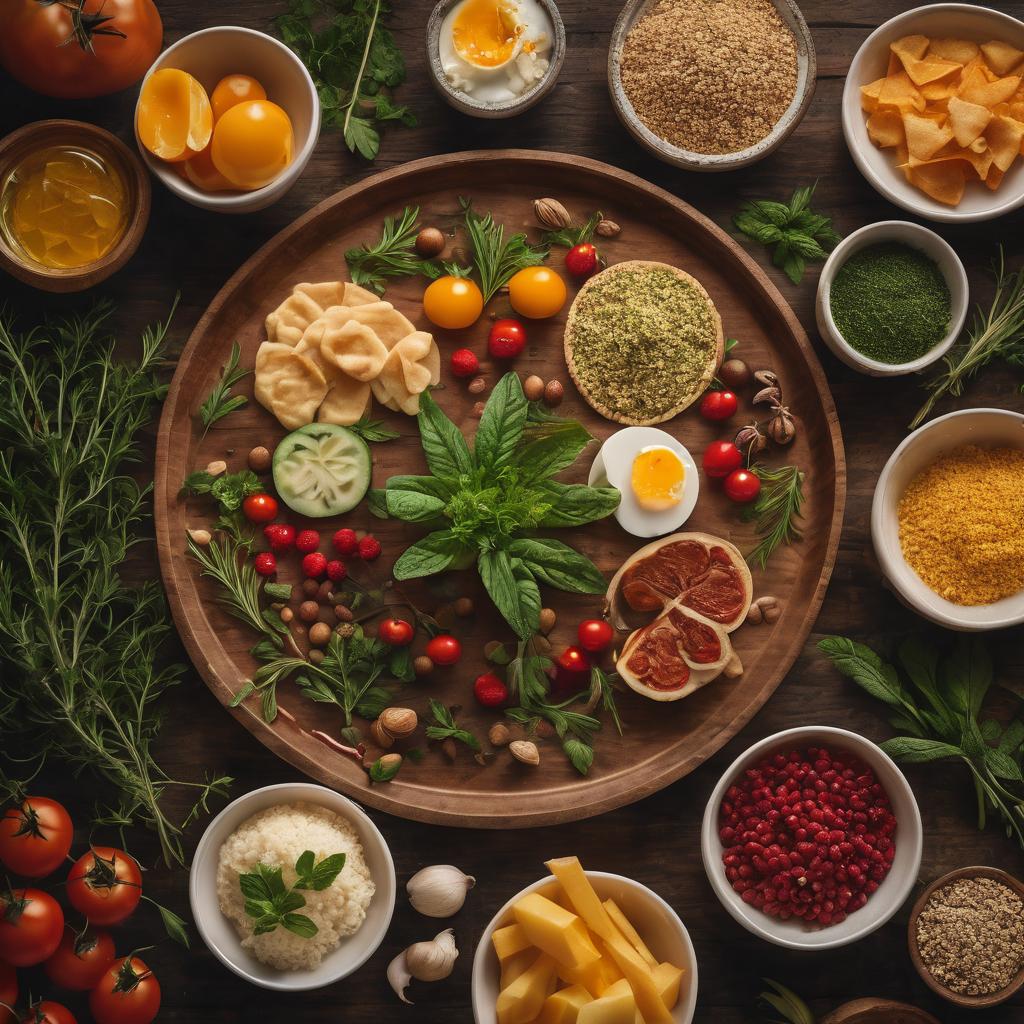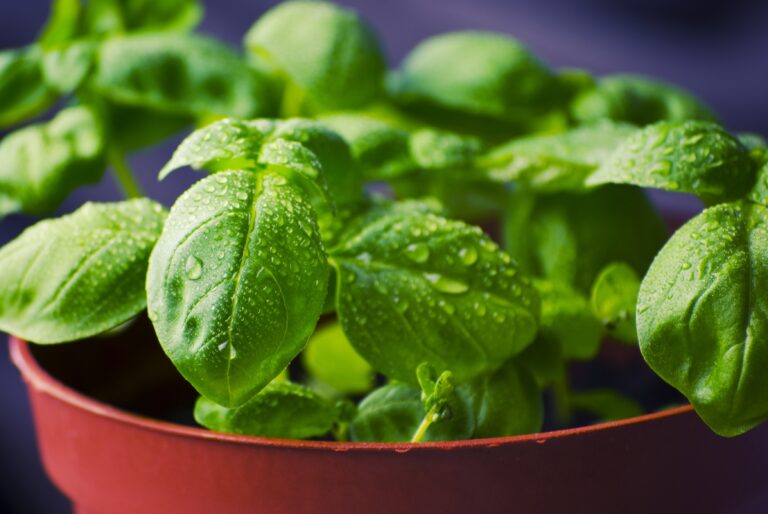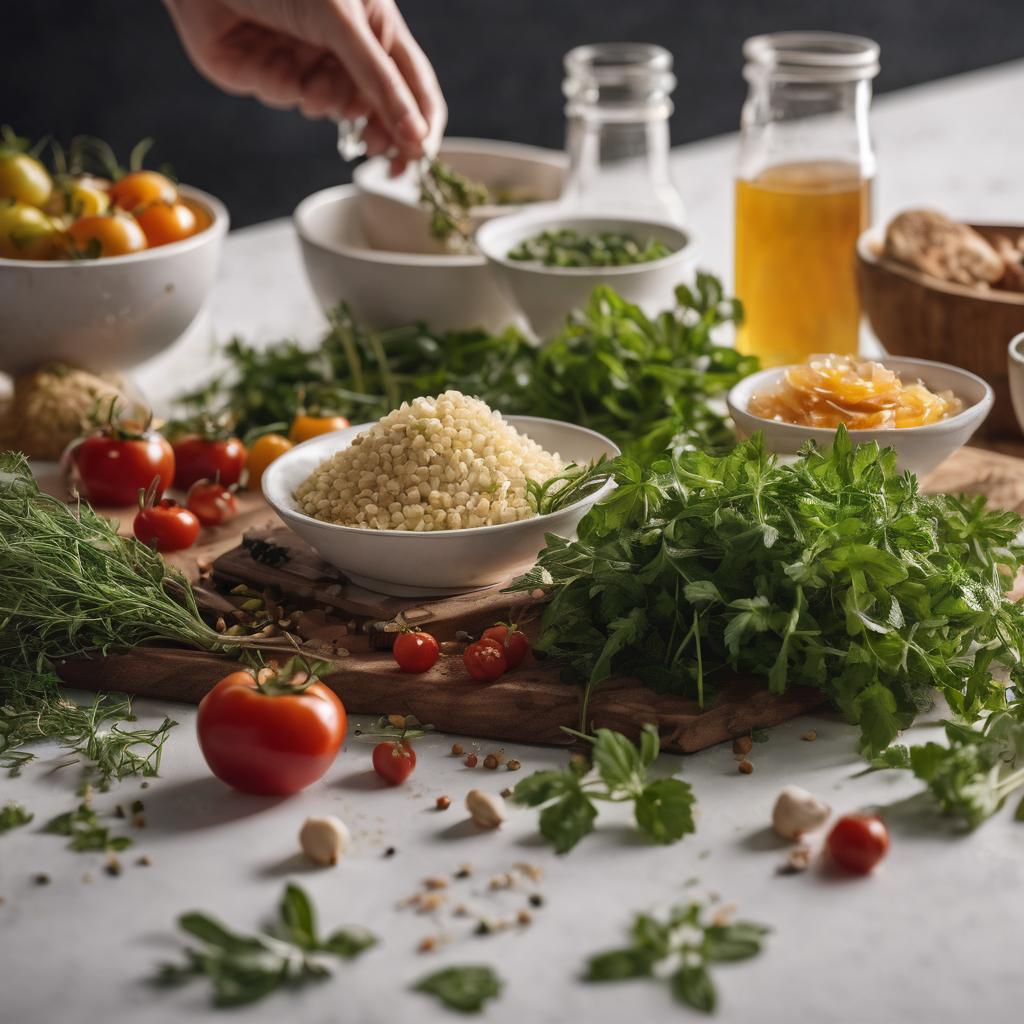The Magic of Adding Herbs to Your Dishes
Adding herbs to your dishes can elevate the flavors and bring a magical touch to your meals. Whether you’re a home cook or a professional chef, incorporating herbs into your recipes can take your culinary creations to a whole new level. The aromatic properties of herbs can infuse your dishes with a burst of freshness and complexity, making each bite a delightful experience.
Not only do herbs add depth and character to your cooking, but they also offer a range of health benefits. Many herbs are known for their medicinal properties and are packed with essential nutrients. From boosting your immune system to aiding digestion, herbs can contribute to your overall well-being. So, why not harness the magic of herbs in your kitchen and explore the endless possibilities they bring to your dishes?
• Herbs can elevate the flavors of your dishes, adding a burst of freshness and complexity.
• Whether you’re a home cook or professional chef, incorporating herbs into your recipes can take your culinary creations to the next level.
• The aromatic properties of herbs infuse your dishes with a delightful experience for your taste buds.
• Not only do herbs enhance the taste, but they also offer numerous health benefits.
• Many herbs have medicinal properties and are packed with essential nutrients that contribute to overall well-being.
• Adding herbs to your meals can boost your immune system and aid in digestion.
• By harnessing the magic of herbs in your kitchen, you open up endless possibilities for creating delicious and nutritious dishes.
Different Types of Herbs and Their Unique Flavors
Basil: Known for its sweet and slightly peppery flavor, basil is a versatile herb that adds a delightful touch to many dishes. Whether you’re making a Caprese salad or simmering a tomato sauce, the distinct aroma of basil enhances the overall taste and brings a fresh and vibrant element to your culinary creations.
Rosemary: With its pine-like and woody fragrance, rosemary adds a robust flavor to a wide range of dishes. From roasted meats to savory stews, this herb intensifies the aroma and infuses a hint of earthiness. Its sharp, slightly minty taste not only elevates the flavors but also adds depth to your favorite recipes. Next time you’re planning to prepare a roast, don’t forget to include a sprig or two of rosemary to take your dish to a whole new level.
• Basil: Known for its sweet and slightly peppery flavor
– Adds a delightful touch to many dishes
– Enhances the overall taste of Caprese salad or tomato sauce
– Brings a fresh and vibrant element to culinary creations
• Rosemary: With its pine-like and woody fragrance
– Adds a robust flavor to a wide range of dishes
– Intensifies the aroma of roasted meats or savory stews
– Infuses a hint of earthiness and depth to recipes
Next time you’re planning to prepare a roast, don’t forget to include a sprig or two of rosemary. It will take your dish to a whole new level with its sharp, slightly minty taste.
How to Properly Store and Preserve Herbs
When it comes to storing and preserving herbs, there are a few key techniques that can help you maintain their flavor and freshness for longer. First and foremost, it is important to understand that different herbs have different storage needs. While some herbs like basil and parsley benefit from being stored in water, others like thyme and rosemary do better when stored in a dry environment. It is always a good idea to remove any rubber bands or ties from the herb bunches before storing them, as this can cause moisture buildup and lead to spoilage.
To preserve herbs for an extended period of time, freezing is a popular method. Simply wash and dry the herbs thoroughly, then chop or leave them whole before placing them in an airtight container or freezer bag. Another option is to make herb-infused oils or vinegars, which not only preserve the herbs but also infuse their flavors into the liquids. This can be done by placing washed and dried herbs in a bottle or jar, covering them with your choice of oil or vinegar, and leaving it to infuse for a few weeks. When it comes to dried herbs, it is best to store them in airtight containers in a cool, dark place away from direct sunlight. Remember to label the containers with the name and date to keep track of their freshness. Proper storage and preservation techniques can help you make the most of your herbs and ensure that they are available to enhance your dishes whenever you need them.
• Different herbs have different storage needs: basil and parsley benefit from being stored in water, while thyme and rosemary do better when stored in a dry environment.
• Remove rubber bands or ties from herb bunches before storing to prevent moisture buildup and spoilage.
• Freezing is a popular method for preserving herbs. Wash and dry them thoroughly, then chop or leave them whole before placing in an airtight container or freezer bag.
• Making herb-infused oils or vinegars is another option for preservation. Place washed and dried herbs in a bottle or jar, cover with oil or vinegar, and let it infuse for a few weeks.
• Dried herbs should be stored in airtight containers in a cool, dark place away from direct sunlight. Label the containers with the name and date to keep track of freshness.
• Proper storage techniques ensure that your herbs are available whenever you need them to enhance your dishes.
Understanding the Health Benefits of Cooking with Herbs
Cooking with herbs not only adds flavor to your dishes but also provides numerous health benefits. Herbs are packed with essential vitamins, minerals, and antioxidants that promote overall well-being. For instance, rosemary is known for its anti-inflammatory properties, which can help alleviate symptoms of arthritis and improve digestion. Thyme, on the other hand, is abundant in vitamins A and C, which support a healthy immune system and promote skin health.
Basil, another popular herb, is recognized for its antibacterial properties. It contains compounds that can help fight off harmful bacteria in the body, reducing the risk of infections. Additionally, parsley is rich in vitamin K, which plays a vital role in blood clotting and bone health. Incorporating these herbs into your cooking can not only enhance the taste of your meals but also contribute to your overall health and well-being.
• Rosemary has anti-inflammatory properties that can help with arthritis and digestion
• Thyme is rich in vitamins A and C, which support the immune system and promote skin health
• Basil has antibacterial properties that can fight off harmful bacteria in the body
• Parsley is a good source of vitamin K, important for blood clotting and bone health
• Cooking with these herbs can enhance taste while improving overall health
Exploring the Culinary Uses of Fresh Herbs
Fresh herbs are a wonderful addition to any dish, whether it’s a simple salad or a complex main course. Their vibrant colors and fragrant aromas add a burst of freshness and elevate the flavor profile. Basil, for example, has a sweet and slightly peppery taste that pairs beautifully with tomatoes and mozzarella in a classic Caprese salad. Similarly, cilantro brings a zesty and citrusy note to salsas and spicy dishes, giving them a bright and refreshing kick.
One of the great things about fresh herbs is their versatility. They can be used in both hot and cold dishes, allowing you to experiment and get creative in the kitchen. For instance, mint leaves can be muddled and used to make a refreshing mojito, or they can be finely chopped and sprinkled over a bowl of fresh fruit for a burst of coolness. The possibilities are endless when it comes to exploring the culinary uses of fresh herbs, and they can truly transform an ordinary dish into something extraordinary.
• Fresh herbs like basil and cilantro add vibrant colors and fragrant aromas to dishes
• Basil pairs well with tomatoes and mozzarella in a Caprese salad
• Cilantro adds a zesty and citrusy note to salsas and spicy dishes
• Fresh herbs can be used in both hot and cold dishes, allowing for experimentation in the kitchen
• Mint leaves can be muddled for cocktails or sprinkled over fresh fruit for a burst of coolness
• Exploring the culinary uses of fresh herbs can elevate ordinary dishes into something extraordinary
Incorporating Dried Herbs in Your Everyday Cooking
Dried herbs, with their concentrated flavors and extended shelf life, are a fantastic addition to any pantry. They effortlessly infuse your dishes with a burst of flavor, adding depth and complexity to your everyday cooking. Whether you are preparing a hearty stew, a zesty pasta sauce, or a comforting bowl of soup, dried herbs can elevate your dishes to new culinary heights.
One of the key advantages of incorporating dried herbs in your everyday cooking is the convenience they offer. Unlike fresh herbs, which require careful storage and can wilt or spoil quickly, dried herbs can be stored for long periods without losing their potency. This means that you can always have an assortment of herbs on hand, ready to be used whenever inspiration strikes. Simply reach into your pantry, measure out the desired amount of dried herbs, and add them directly to your simmering pot or sizzling pan. The result? Instant flavor infusion that will transport your taste buds to a world of tantalizing aromas and mouthwatering goodness.
• Dried herbs have concentrated flavors that add depth and complexity to dishes
• Extended shelf life allows for long-term storage without losing potency
• Convenient option compared to fresh herbs, which require careful storage and can spoil quickly
• Easy to measure out desired amount and add directly to cooking pot or pan for instant flavor infusion
Creating Delicious Herb-infused Oils and Vinegars
Infusing oils and vinegars with herbs is a delightful way to add depth and complexity to your culinary creations. By infusing these basic kitchen staples with the vibrant aromas and flavors of fresh herbs, you can elevate your dishes to a whole new level. From drizzling herb-infused oils over salads to using herb-infused vinegars in marinades, the possibilities are endless.
To create your own herb-infused oils and vinegars, start by selecting your favorite herbs. Rosemary, thyme, basil, and oregano are popular choices. Thoroughly wash and dry the herbs, removing any stalks or tough stems. Fill a glass jar with the herbs, crushing them gently to release their oils. Next, pour the oil or vinegar of your choice over the herbs, ensuring they are completely submerged. Seal the jar tightly and let it sit in a cool, dark place for about two weeks, allowing the flavors to infuse. After this time, strain out the herbs and transfer the infused oil or vinegar to a clean bottle. The final product will not only taste fantastic but also make a beautiful addition to your kitchen shelf.
• Infusing oils and vinegars with herbs adds depth and complexity to dishes
• Herb-infused oils can be drizzled over salads for added flavor
• Herb-infused vinegars can be used in marinades to enhance taste
• Start by selecting your favorite herbs such as rosemary, thyme, basil, or oregano
• Thoroughly wash and dry the herbs before removing any stalks or tough stems
• Fill a glass jar with the herbs, gently crushing them to release their oils
• Pour your choice of oil or vinegar over the herbs, ensuring they are completely submerged
• Seal the jar tightly and let it sit in a cool, dark place for approximately two weeks
• This allows time for the flavors to infuse into the oil or vinegar
• After two weeks, strain out the herbs and transfer the infused liquid into a clean bottle
• The final product will not only taste fantastic but also make a beautiful addition to your kitchen shelf.
Spice Up Your Meals with Herb Blends and Seasonings
One of the easiest ways to add a burst of flavor to your meals is by using herb blends and seasonings. These combinations of herbs and spices can elevate the taste of any dish, from grilled meats to roasted vegetables. Whether you’re creating a rub for a steak or adding a sprinkle of herbs to your pasta sauce, herb blends and seasonings can take your cooking to the next level.
When it comes to herb blends, there are countless options to choose from. Classic combinations like Italian herb blend, which includes herbs like basil, oregano, and thyme, are versatile and can be used in a variety of dishes. Mexican spice blend, on the other hand, features cumin, chili powder, and garlic, adding a bold and savory flavor to your tacos or enchiladas. And let’s not forget about the ever-popular herb de Provence, a fragrant mix of herbs like rosemary, thyme, and lavender that is perfect for seasoning roasted chicken or vegetables. The possibilities are truly endless when it comes to creating herb blends and seasonings that suit your taste and complement your favorite dishes.
• Italian herb blend: basil, oregano, thyme
• Mexican spice blend: cumin, chili powder, garlic
• Herb de Provence: rosemary, thyme, lavender
Herb blends and seasonings can be used in a variety of dishes to enhance their flavors. Whether you’re grilling meats or roasting vegetables, adding a sprinkle of herbs can take your dish from ordinary to extraordinary. The right combination of herbs and spices can add depth and complexity to your meals.
Not only do herb blends and seasonings add flavor to your dishes, but they also offer health benefits. Many herbs are packed with antioxidants and have anti-inflammatory properties. For example, rosemary has been shown to improve digestion and boost memory function. Basil is known for its antibacterial properties and can help reduce inflammation.
Experimenting with different herb blends and seasonings is a fun way to get creative in the kitchen. You can mix up your own combinations based on personal preference or try out pre-made blends available at grocery stores or online retailers. Don’t be afraid to think outside the box – you might discover new favorite flavor profiles that will become staples in your cooking repertoire.
When using herb blends and seasonings, it’s important to remember that a little goes a long way. Start with small amounts and taste as you go until you achieve the desired level of flavor intensity. It’s always easier to add more seasoning than it is to tone down an overpowering taste.
In addition to enhancing savory dishes like meats and vegetables, herb blends can also be used in sweet recipes such as baked goods or fruit salads. A sprinkle of cinnamon or nutmeg can bring warmth and depth of flavor to desserts like apple pie or banana bread.
So why settle for bland meals when you can easily spice them up with herb blends? Experiment with different combinations until you find ones that suit your taste buds perfectly. With just a few simple additions, you can transform your everyday cooking into something truly extraordinary.
Enhancing the Flavor of Your Salads with Fresh Herbs
Fresh herbs are a delightful addition to any salad, adding a burst of flavor and freshness that can elevate your dish to a whole new level. Whether you’re a fan of classic combinations like basil and tomato or prefer more adventurous pairings like mint and watermelon, the options are endless when it comes to incorporating herbs into your salads.
The key to successfully enhancing the flavor of your salads with fresh herbs is to choose the right herb for the job. While some herbs, like parsley and dill, are mild enough to be used as a garnish, others, such as cilantro and tarragon, have more intense flavors that can take center stage in your salad. Experimenting with different herbs and combinations can help you discover new and interesting flavor profiles that will make your salads anything but ordinary. So why not take your salads from drab to fab by exploring the wonderful world of fresh herbs?
• Fresh herbs add a burst of flavor and freshness to salads
• Classic combinations like basil and tomato or mint and watermelon can elevate your salad
• Choosing the right herb is key to enhancing the flavor of your salad
• Mild herbs like parsley and dill work well as garnishes
• Intense flavors from herbs like cilantro and tarragon can take center stage in your salad
• Experimenting with different herbs and combinations can create unique flavor profiles for your salads
Unveiling the Secrets of Growing Your Own Herb Garden
Growing your own herb garden can be a rewarding and fulfilling experience. Not only do herbs add a burst of flavor to your dishes, but they also offer a range of health benefits. To start your own herb garden, choose a sunny spot in your backyard or balcony that receives at least six hours of direct sunlight each day. Herbs like basil, thyme, and rosemary thrive in warm weather, while others like parsley and mint prefer a slightly cooler environment. Prepare the soil by removing any weeds and loosening it with a garden fork. It’s important to ensure good drainage, so consider adding organic matter like compost or peat moss to increase the soil’s fertility. Once your garden is ready, sow the herb seeds or transplant seedlings, making sure to space them adequately to allow for proper growth. Regularly water your herb garden, keeping the soil moist but not soaked. As your herbs grow, remember to trim them regularly to encourage bushier growth and prevent them from becoming too leggy. With a little time and care, you’ll have a flourishing herb garden that will provide you with fresh herbs right at your fingertips.
When it comes to caring for your herb garden, there are a few additional tips that you should keep in mind. Be mindful of pests and diseases that may affect your herbs, such as aphids or powdery mildew. You can mitigate these issues by regularly inspecting your plants and addressing any problems promptly. Additionally, it’s important to harvest your herbs correctly to ensure optimal flavor and growth. Harvesting in the morning, after the dew has dried, is ideal as the essential oils in the herbs are at their peak concentration. Pick the leaves individually or cut the stems just above a leaf node to encourage new growth. When using your freshly harvested herbs, remember that they are more potent than dried herbs, so adjust your recipes accordingly. By following these tips and paying attention to the needs of your herb garden, you’ll be able to enjoy a bountiful harvest and elevate your culinary creations with the vibrant flavors of your homegrown herbs.
• Choose a sunny spot in your backyard or balcony for your herb garden
• Ensure the chosen spot receives at least six hours of direct sunlight each day
• Different herbs thrive in different weather conditions, so choose accordingly
• Prepare the soil by removing weeds and loosening it with a garden fork
• Consider adding organic matter like compost or peat moss to improve soil fertility
• Sow herb seeds or transplant seedlings, spacing them adequately for proper growth
• Keep the soil moist but not soaked by regularly watering your herb garden
• Trim the herbs regularly to encourage bushier growth and prevent legginess
• Be mindful of pests and diseases that may affect your herbs, such as aphids or powdery mildew
– Regularly inspect plants and address any problems promptly
– Harvesting in the morning after dew has dried is ideal for optimal flavor and growth
– Pick leaves individually or cut stems just above leaf node to encourage new growth
– Freshly harvested herbs are more potent than dried ones, adjust recipes accordingly



